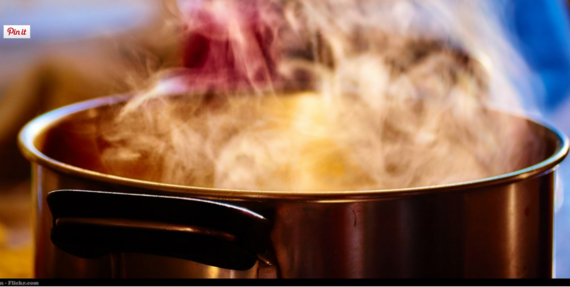The tradition of yoga has a long history of practices and rituals around our food. These include suggestions around preparing and eating food to optimize digestion. Ayurveda, an ancient healing system that grew up alongside Yoga, suggests that our "stomach fire," or Agni, determines our health.
Modern science is also confirming these ancient traditions, showing that our digestion is affected not only by what we eat, but by how we eat. For example, a 2012 research study published in the Journal of the Academy of Nutrition and Dietetics found that using mindful eating is an effective approach for weight management and glycemic control in people with diabetes.
Cooking for Yourself and Others
Yoga emphasizes that the energy we put into preparing our food is what infuses it with vitality and makes our food sacred. This is why cooking for yourself and others is so important to your health and well-being. When you cook for yourself, you mindfully connect with the food as you cook. I learned to cook from Indian women when I lived in a yoga community as a teenager. I was struck by the amount of love and attention they gave to the food. They would literally pick up the rice and gently rub their hands together to clean the grains, infusing them with the kind of tenderness you would use when bathing a small child. Often they would be chanting a mantra or quietly offering prayers of gratitude as they cooked. This image is still with me today and has become part of my own cooking process.
When you cook for yourself you can control the quality of your food as well as the energy that goes into your food. Eating food that has been cooked by someone who is in a loving and calm space delivers that feeling and energy into the food. On the other hand, when the cook is angry or frustrated, it can have a negative effect on the food and digestion. I was at a conference once and we went to eat at a local food truck. The woman cooking was quite irritated because everyone from the conference had descended on her all at once. In her haste and overwhelm, I could hear her grumbling as she cooked. When she finished a dish she would angrily shove it towards the window. As I ate it, I didn't feel good and for the rest of the day my stomach and digestion suffered.
A Practice of Love
We are not separate from our energy. If we are angry or upset while cooking it will affect those who eat the food. In the same way if we are angry or upset while eating, it will have a negative effect on our digestion. In yogic cooking, we allow the experience of cooking to be a practice of love and devotion. When we put love and positive energy into the food, it nourishes your own body, mind and spirit and those who you are cooking for.
Mindful Eating
Additionally, we can also choose to make our practices around eating more meaningful. Infusing the food with gratitude and awareness can also improve our connection to the food and where it came from. When we pray or imbue our food with mindful awareness, we are also aligning ourselves with the people who grew the food, with the elements in nature that supported that growth, and with those who delivered and prepared the food. Mindful eating not only increases our sense of gratitude, but we may find that we don't eat as much. (See Ornish Living article, How Mindful Eating Makes Us Healthier & More Fulfilled.)
To help improve digestion, yoga suggests choosing foods that are energizing and life giving (Sattvic), and easy on your digestive tract. These are foods that make your body and mind feel balanced and nourished. The fresher the food the more prana, or energy, it will offer you, so try reducing foods that are boxed and packaged, old or reheated. Old foods or packaged foods take more energy for the body to digest them than they give the body in return.
Five Yogic Rituals to Improve Your Digestion
- Eat with the rhythms of the sun. After the sun goes down we don't have as much energy for digestion so eating your main meal when the sun is the hottest can help improve digestion.
- Chew your food carefully. Our stomach doesn't have teeth. The more you chew, the easier it will be to digest and the more you can savor and appreciate the food.
All of these practices can support and calm your digestion.
What rituals around food help you to make cooking and eating food more sacred?
